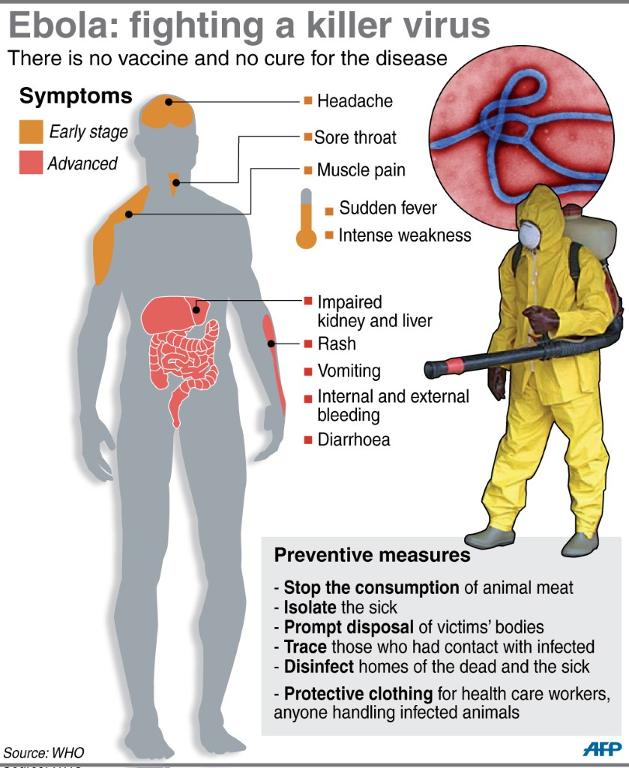The tragedy of Ebola has once again reared its destructive head in Africa. Liberia's President Ellen Johnson Sirleaf; has closed several border crossings, restricted public movement and issued orders to quarantine communities directly affected by the outbreak in her nation.
Since the Ebola outbreak, 133 people have died in Liberia, including three healthcare workers and one doctor. In total, more than 670 people in West Africa have died due to the spread of the virus. At present, there is no cure or vaccine to prevent the spread of Ebola.
Fears have risen in the West that the virus could easily spread to a major population centre in the U.S., Canada, or Europe. Many journalists are questioning in the media whether or not there are enough protections in place to deter such a devastating consequence of the Ebola virus suddenly infecting several thousand people in New York, Paris or Toronto. In my view, anything is possible in today's super-connected world. Indeed, vigilence is the key to deterence.

What is the Ebola virus?
According to the World Health Organization: The Ebola Virus, also known as haemorrhagic fever, is a severe, often fatal illness in humans. Ebola outbreaks have a case fatality rate of up to 90 percent. Outbreaks occur primarily in remote villages in Central and West Africa near tropical rainforests.
How Ebola is transmitted to humans
The virus is transmitted to humans from wild animals through the consumption of raw meat from bats, gorillas and chimpanzees. It is then spread in the human population through bodily fluids such as saliva or blood.
The virus can also be spread through broken skin or mucous membranes, or from the secretions and organs from bodily fluids of infected people. The virus can also be transmitted through indirect contact with environments contaminated with such fluids such as toilets, bed linen, or cutlery.
Burial ceremonies in which mourners have direct contact with the body of a deceased victim can also play a role in the transmission of Ebola. Men who have recovered from the disease can still transmit the virus through their semen for up to seven weeks after recuperating from the illness. Fruit bats are considered the natural host of the Ebola virus
In order to reduce the risk of animal-to-human transmission from contact with infected fruit bats, monkeys, or apes― raw meat from these animals should not be consumed. All animals should be handled with gloves and other appropriate protective clothing. Animal products i.e., blood and meat from host species must be thoroughly cooked before eaten.
The Ebola virus is also a potential bio-terrorism agent because of its difficulty to contain and manage. It is also a horrific way to die, with fever, diarrhea, and bleeding from the eyes, nose, and internal organs, which presents a dangerous challenge to the spread of the disease.
What is needed is a global effort to contain and ultimately find a cure for such a catastrophic virus. Because sooner or later, if not contained in Africa due to the incubation period of between two and 21 days, the Ebola virus much like HIV in the 1980’s could find its way to the Americas and Europe, where many more people will die due to the close proximity of transportation systems, airlines, and population affluence.
It is important to note, people who believe they may have been exposed to the Ebola virus should not travel for a minimum of 21 days in order to be certain they have not been infected. Anyone who suspects they may have contracted Ebola should quarentine themselves immediately, and contact the medical authorities in their local jurisdiction.


